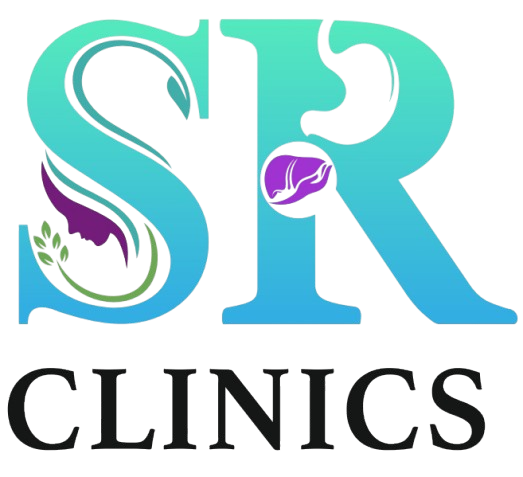
Fatty Liver Disease
Fatty liver disease, also known as hepatic steatosis, is a condition where excess fat builds up in the liver. It is often associated with obesity, diabetes, high cholesterol, or excessive alcohol consumption. Fatty liver disease can be classified into two types: non-alcoholic fatty liver disease (NAFLD) and alcoholic fatty liver disease (AFLD). If left untreated, it can progress to more severe conditions like liver inflammation, fibrosis, or cirrhosis.
At SR Clinic, we offer comprehensive care for fatty liver disease, focusing on early diagnosis, lifestyle modifications, and personalized treatment plans. Our team of specialists uses advanced diagnostic tools and evidence-based therapies to help patients manage their condition and improve liver health.
FibroScan for Fatty Liver: A Non-Invasive Diagnostic Tool
FibroScan is an advanced, non-invasive diagnostic tool used to assess liver stiffness and fat accumulation in patients with fatty liver disease. It helps detect liver fibrosis (scarring) and steatosis (fat buildup) without the need for a painful liver biopsy. This quick and painless procedure uses ultrasound-based elastography to measure liver health, making it an essential tool for monitoring non-alcoholic fatty liver disease (NAFLD) and liver fibrosis progression. If you have obesity, diabetes, or metabolic syndrome, a FibroScan test can provide early detection and better treatment planning for liver health.
Steps for Managing Fatty Liver Disease
- Diagnosis: Blood tests, liver function tests, and imaging studies (ultrasound, CT, or MRI) to assess liver health and fat accumulation.
- Lifestyle Modifications: Weight loss, a balanced diet low in saturated fats and sugars, and regular exercise to reduce liver fat.
- Medical Treatment: Medications to manage underlying conditions like diabetes, high cholesterol, or obesity.
- Monitoring and Follow-Up: Regular check-ups and liver function tests to track progress and prevent complications.
Frequently Asked Questions
In the early stages, fatty liver disease often has no noticeable symptoms. As it progresses, symptoms may include fatigue, abdominal discomfort, and jaundice (yellowing of the skin and eyes).
Yes, fatty liver disease can often be reversed through lifestyle changes such as weight loss, a healthy diet, regular exercise, and avoiding alcohol. Early intervention is key to preventing progression.
Diagnosis involves blood tests to check liver enzymes, imaging studies like ultrasound or MRI to detect fat accumulation, and sometimes a liver biopsy for confirmation.
Patients should avoid foods high in saturated fats, sugars, and refined carbohydrates, such as fried foods, sugary drinks, processed snacks, and alcohol. A diet rich in fruits, vegetables, whole grains, and lean proteins is recommended.
